
The Max Planck Institute of Biochemistry is a research institute of the Max Planck Society located in Martinsried, a suburb of Munich. The institute was founded in 1973 by the merger of three formerly independent institutes: the Max Planck Institute of Biochemistry, the Max Planck Institute of Protein and Leather Research, and the Max Planck Institute of Cell Chemistry.
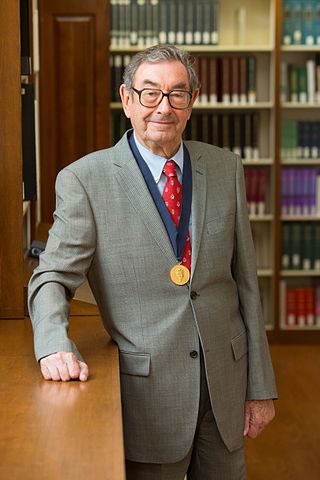
Harry Barkus Gray is the Arnold O. Beckman Professor of Chemistry at California Institute of Technology.
Christopher J. Chang is a professor of chemistry and of molecular and cell biology at the University of California, Berkeley, where he holds the Class of 1942 Chair. Chang is also a member of the Helen Wills Neuroscience Institute, a Howard Hughes Medical Institute investigator, adjunct professor of pharmaceutical chemistry at the University of California, San Francisco, and faculty scientist at the chemical sciences division of Lawrence Berkeley Lab. He is the recipient of several awards for his research in bioinorganic chemistry, molecular and chemical biology.
Alanna Schepartz is an American professor and scientist. She is currently the T.Z. and Irmgard Chu Distinguished Chair in Chemistry at University of California, Berkeley. She was formerly the Sterling Professor of Chemistry at Yale University.
Linda Carol Hsieh-Wilson is an American chemist and the Milton and Rosalind Chang Professor of Chemistry at the California Institute of Technology. She is known for her work in chemical neurobiology on understanding the structure and function of carbohydrates in the nervous system. Her studies have revealed critical roles for carbohydrates and protein glycosylation in fundamental processes ranging from cellular metabolism to memory storage. She is a member of the American Academy of Arts and Sciences and was elected to the National Academy of Sciences in 2022.

Martin Gruebele is a German-born American physical chemist and biophysicist who is currently James R. Eiszner Professor of Chemistry, Professor of Physics, Professor of Biophysics and Computational Biology at the University of Illinois Urbana-Champaign, where he is the principal investigator of the Gruebele Group.

Erin K. O'Shea is an American biologist who is president of the Howard Hughes Medical Institute (HHMI). In 2013, she was named HHMI's vice president and chief scientific officer. Prior to that, she was a professor of molecular and cellular biology and chemistry and chemical biology at Harvard University. In 2016, her appointment as future, and first woman, president of HHMI was announced. She has been a Howard Hughes Medical Institute (HHMI) investigator since 2000.

Nenad Ban is a biochemist born in Zagreb, Croatia who currently works at the ETH Zurich, Swiss Federal Institute of Technology, as a professor of Structural Molecular Biology. He is a pioneer in studying gene expression mechanisms and the participating protein synthesis machinery.
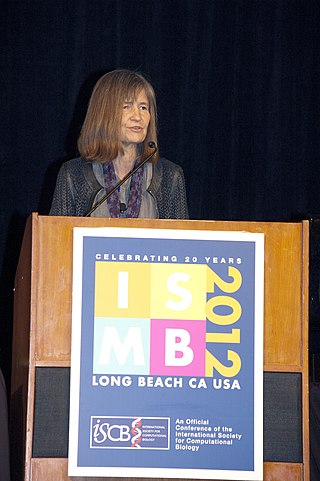
Barbara J. Wold is the Bren Professor of Molecular Biology, the principal investigator of the Wold Lab at the California Institute of Technology (Caltech) and the principal investigator of the Functional Genomics Resource Center at the Beckman Institute at Caltech. Wold was director of the Beckman Institute at Caltech from 2001 to 2011.

The Beckman Institute at Caltech is a multi-disciplinary center for research in the chemical and biological sciences, located at and partnering with the California Institute of Technology (Caltech) in Pasadena, California, United States.
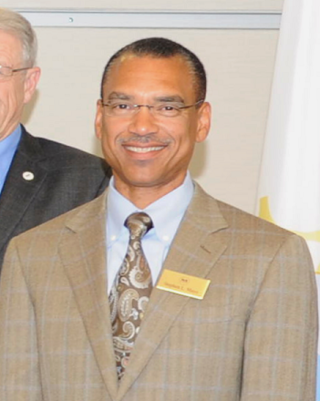
Stephen L. Mayo is a professor at the California Institute of Technology, where he is the William K. Bowes Jr. Leadership Chair in the Division of Biology and Biological Engineering, and the Bren Professor of Biology and Chemistry. His research focuses on structural biology and the development of computational methods for protein design. Mayo was elected to the United States National Academy of Sciences in 2004 and was appointed to a six-year term on the National Science Board in 2013.

Jillian Lee Dempsey is an American inorganic chemist and the Bowman and Gordon Gray Distinguished Term Professor at the University of North Carolina at Chapel Hill. Currently, her work focuses on proton-coupled electron transfer, charge transfer events, and quantum dots. She is the recipient of numerous awards for rising stars of chemistry, including most recently a 2016 Alfred P. Sloan Research Fellowship and a 2016 Air Force's Young Investigator Research Program (YIP).
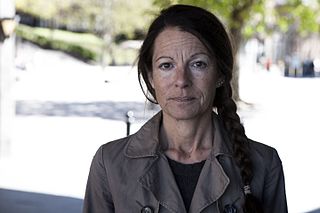
Pernilla Wittung-Stafshede is a Swedish biophysical chemist, born in 1968, who is a professor of chemical biology at Chalmers University of Technology in Gothenburg. In 2019 she was named by International Union of Pure and Applied Chemistry as a Distinguished Woman in Chemistry.

Cynthia Wolberger is an American structural biologist currently at Johns Hopkins University School of Medicine and an Elected Fellow of the American Association for the Advancement of Science. On April 19, 2019, she was elected as a member of the National Academy of Science among 100 new members and 25 foreign associates. She received her undergraduate degree in Physics from Cornell University in 1979 and her Ph.D. in Biophysics at Harvard University in 1987. She completed postdoctoral work at the University of California, San Francisco (1987-1989) and the Johns Hopkins School of Medicine (1989-1991). Her research concentrations include structural biology, ubiquitin signaling, and transcription regulation. Significant progress has been made by Wohlberger in understanding the structural biology of gene and protein control.
Erin Margaret Schuman, born May 15, 1963, in California, US, is a neurobiologist who studies neuronal synapses. She is currently a Director at the Max Planck Institute for Brain Research.
Carla M. Koehler is an American biochemist who is a professor at the University of California, Los Angeles. Her research considers mitochondria and the processes which import proteins to their appropriate locations in the organelles. She was elected Fellow of the American Association for the Advancement of Science in 2018.
Hosea Nelson is an American chemist who is a professor at California Institute of Technology. His research investigates the design and total synthesis of complex molecules. He was a finalist for the 2021 Blavatnik Awards for Young Scientists.

Joan-Emma Shea is an American chemist who is a professor at the University of California, Santa Barbara. Her research applies statistical and computational approaches to address biological problems. She is a Fellow of both the American Physical Society and the American Chemical Society, and the editor-in-chief of the Journal of Physical Chemistry.
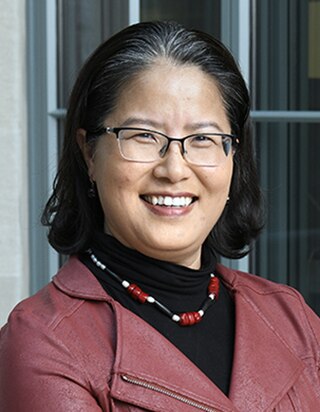
Songi Han is an American chemist who is a professor in the department of chemistry and biochemistry at Northwestern University. Her research considers electron and nuclear spins as sensors and detectors. She was elected a Fellow of the International Society of Magnetic Resonance in 2019 and president of the International EPR Society in 2020.
Matt Thomson is an American computational biologist, academic, and entrepreneur. He works in the fields of computational biology, biophysics, and machine learning.













